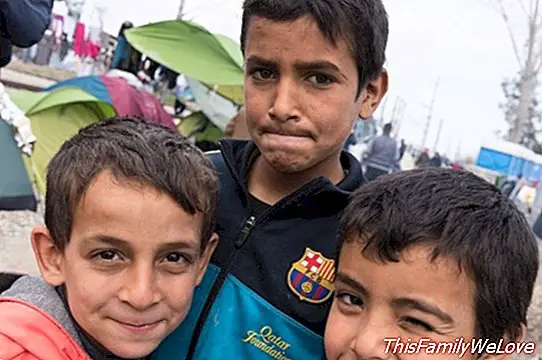36% of Spanish children live at risk of social exclusion

Spain presents serious inequalities with respect to the general well-being of children, according to the report Equity for children. The case of Spain, which has just presented UNICEF Spanish Committee. This inequality gap affects the 36% of Spanish children living at risk of poverty or social exclusion. In this issue, number 13, inequality in the well-being of children in 41 countries is addressed, based on four variables: income, education, health and life satisfaction.
With this report UNICEF Spanish Committee aims to bring to light the social reality of an important social group that is staying away from the welfare, security and opportunities enjoyed by the rest of society. Specifically, children and young people are the most affected group, as a result of the economic crisis,
36% of children live at risk of poverty
The number of children and young people living at risk of poverty or social exclusion is currently 36 percent. However, Spain is one of the countries that is doing least to alleviate this situation. According to the report of UNICEF, "Spain is the country of the European Union that less percentage of the Gross Domestic Product (GDP) dedicated to cash benefits for families and children: 0.5%, less than a third of the European average It is also among the countries that spend less on social protection for children and their families, with 1.4% of GDP, compared with 2.3% on average in the EU or 3.7% in Denmark, 3% from Ireland or 2.5% from France ".
"The capacity of the Spanish state to reduce poverty and inequality in childhood has been quite limited to date," says Maite Pacheco, director of Awareness and Childhood Policies of UNICEF Spanish Committee. "There has been little investment in social protection, and what little there has been has not yielded enough results."
Consequences of the inequality gap
Social inequality, especially when it affects children, has a series of negative consequences and disadvantages for families and their children:
1. Children from families with fewer resources They have more difficulties in accessing education, health and housing.
2. Your future employment is uncertaindue to the lack of resources to access adequate preparation.
"There is no possibility of fulfilling the rights of children if there is no determined effort by governments to reduce the gap that separates some children from others," says Carmelo Angulo, president of UNICEF Spanish Committee. "Addressing the social inequalities that affect children should be a key element in all policies related to children and their economic, social and emotional well-being."
In the health areas, Spain ranks 10 out of 35, and in education where it ranks 12 out of 37, the most optimistic data is glimpsed. However, in terms of children's life satisfaction, inequality has grown in the recent years, and has especially affected two groups: the girls and the migrant children's collective.
Measures to fight against inequality in children
The report highlights the positive measures that have been carried out, such as the approval of the II Strategic Plan for Children and Adolescents 2013 -2016, the National Plan of Action for Social Inclusion, and the implementation of the Extraordinary Fund for Poverty Childhood and the Comprehensive Family Support Plan. However, given the magnitude of this problem, the 48 million euros with which the Fund against Child Poverty is endowed are very scarce. UNICEF Spanish Committee estimates that investment in childhood policies by all public administrations per child decreased by more than 6,300 million euros between 2010 and 2013.
Among the measures proposed by UNICEF in the report to curb child inequality include:
- Child benefit of 1,200 euros per year, starting with households with less income.
- Scholarships, educational support and education from 0 to 3 years accessible to all and free for households with fewer resources.
- Guarantee universal access to health and the medicines.
- Make a childhood barometer.
- Improve indicators and public monitoring of inequality, especially that of childhood.
Marisol Nuevo Espín




